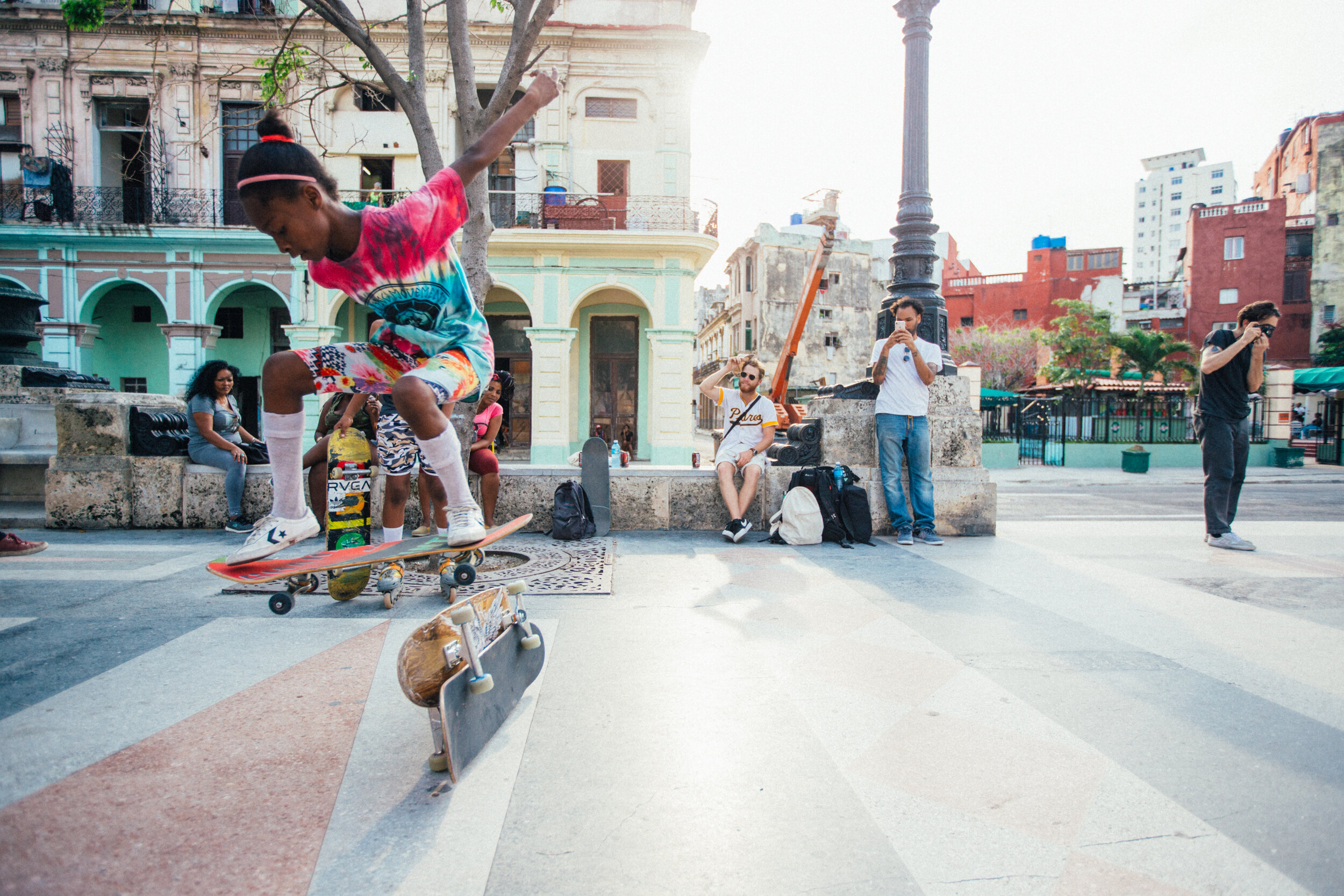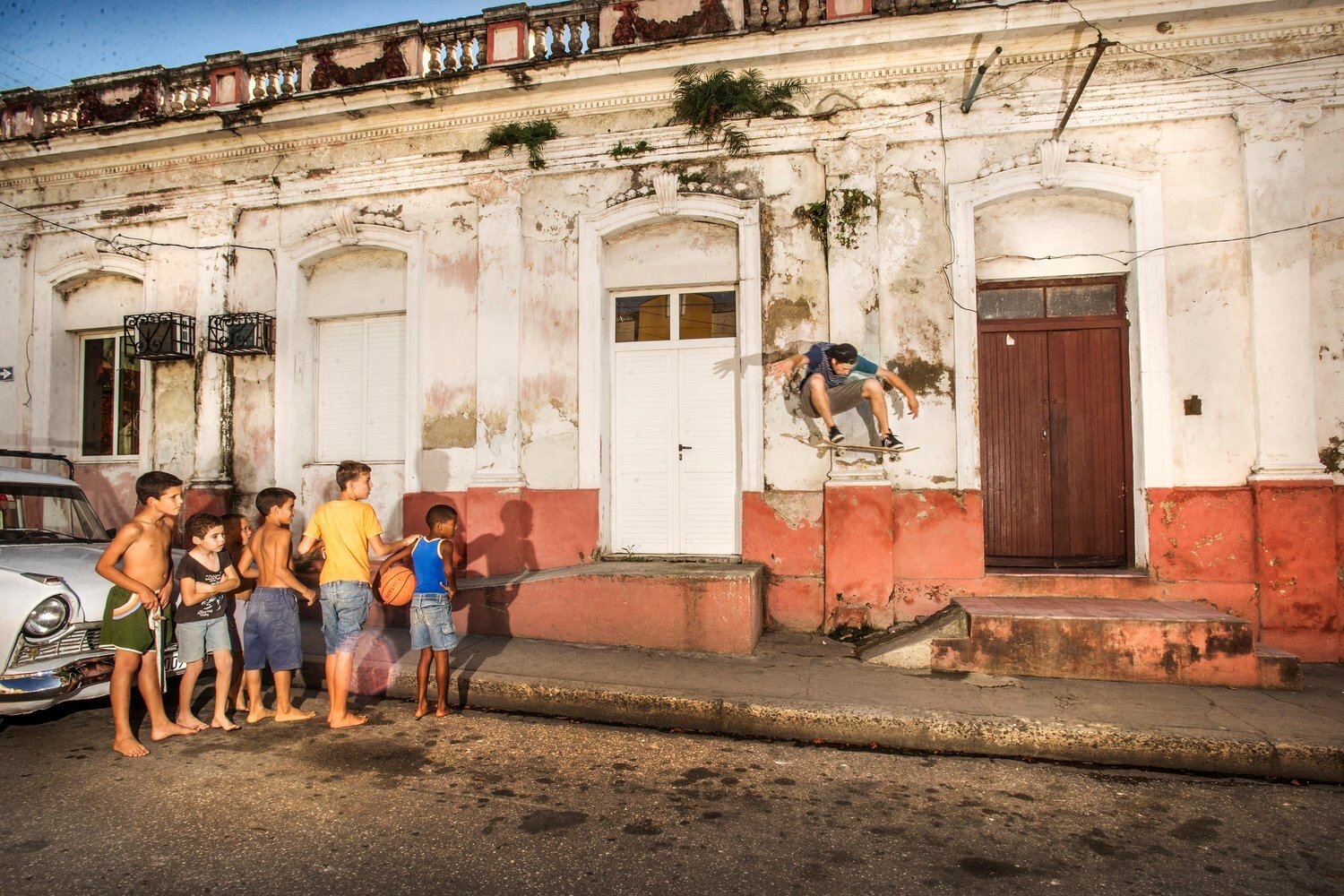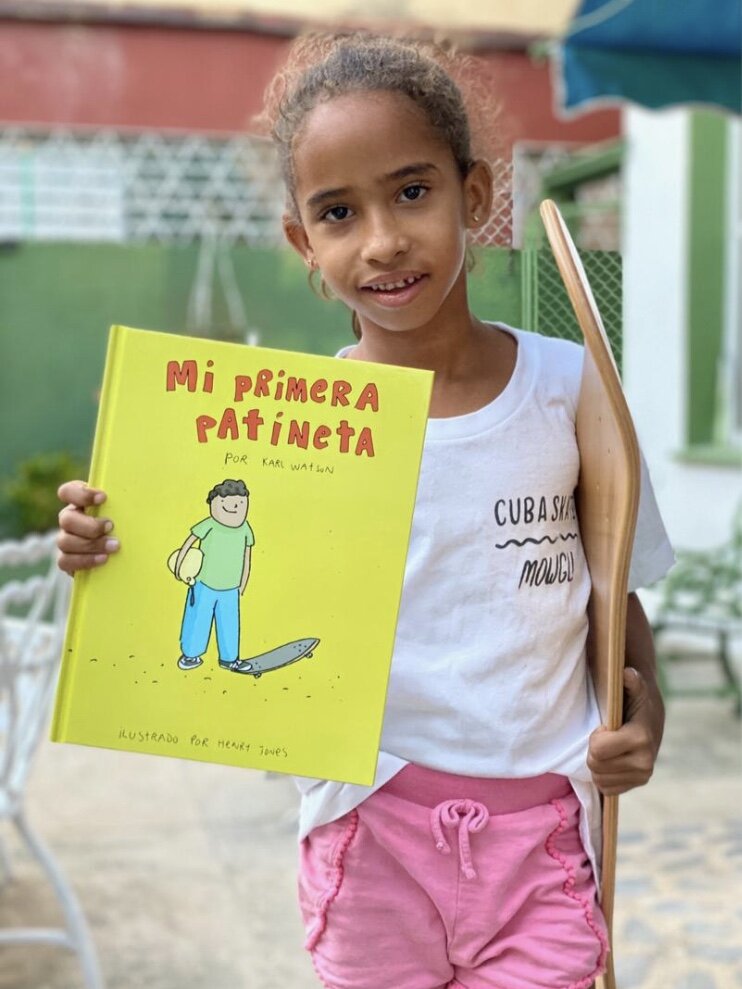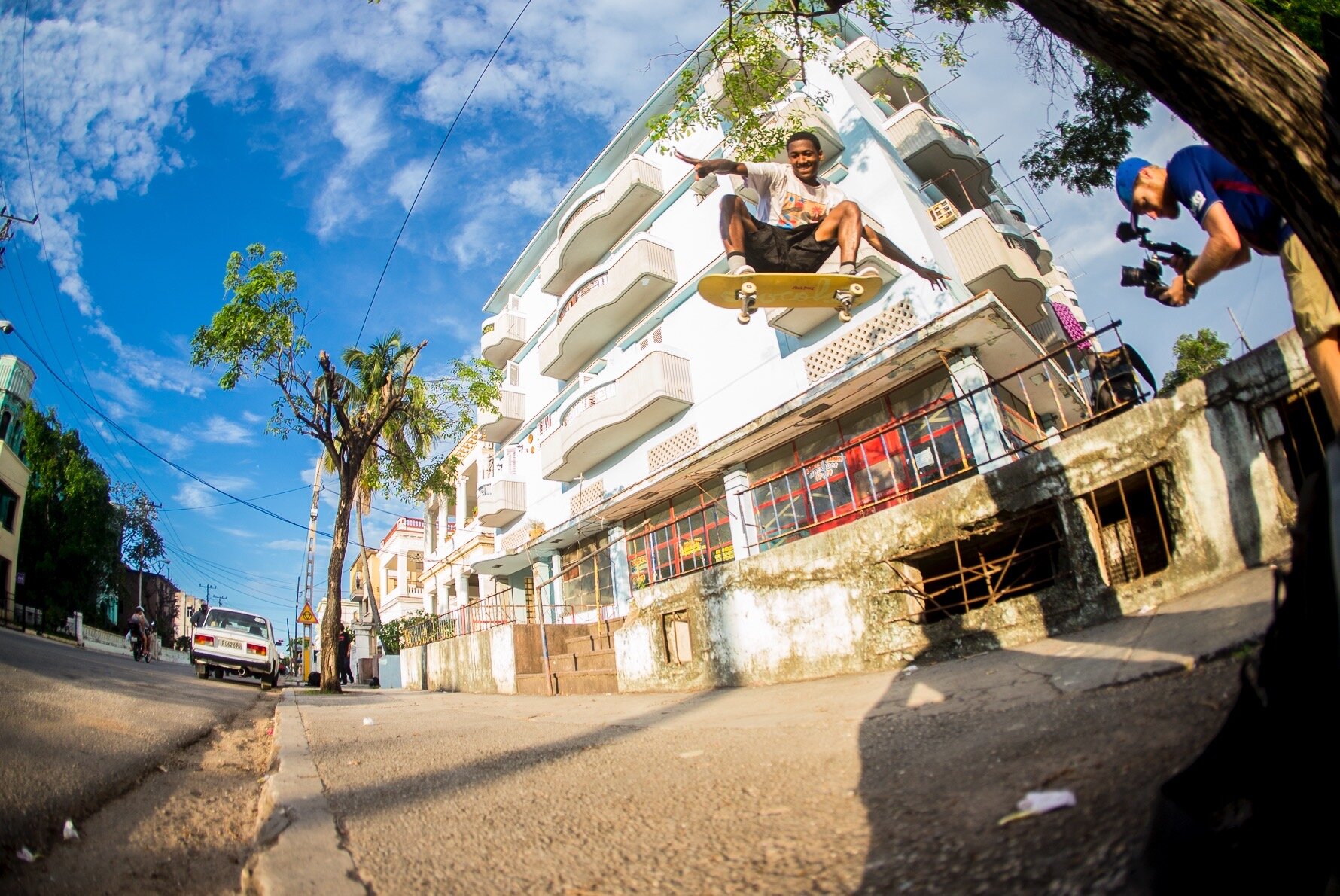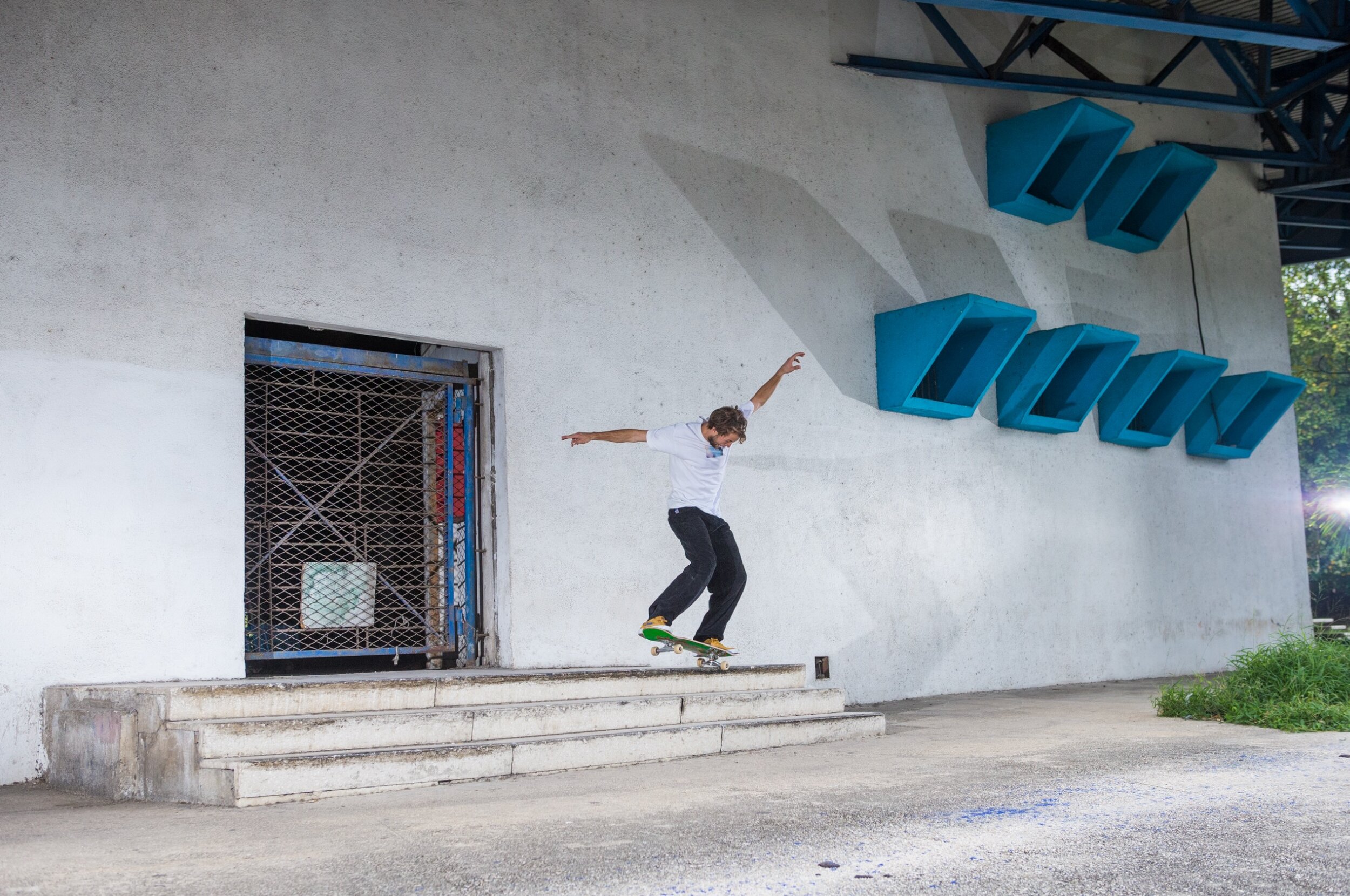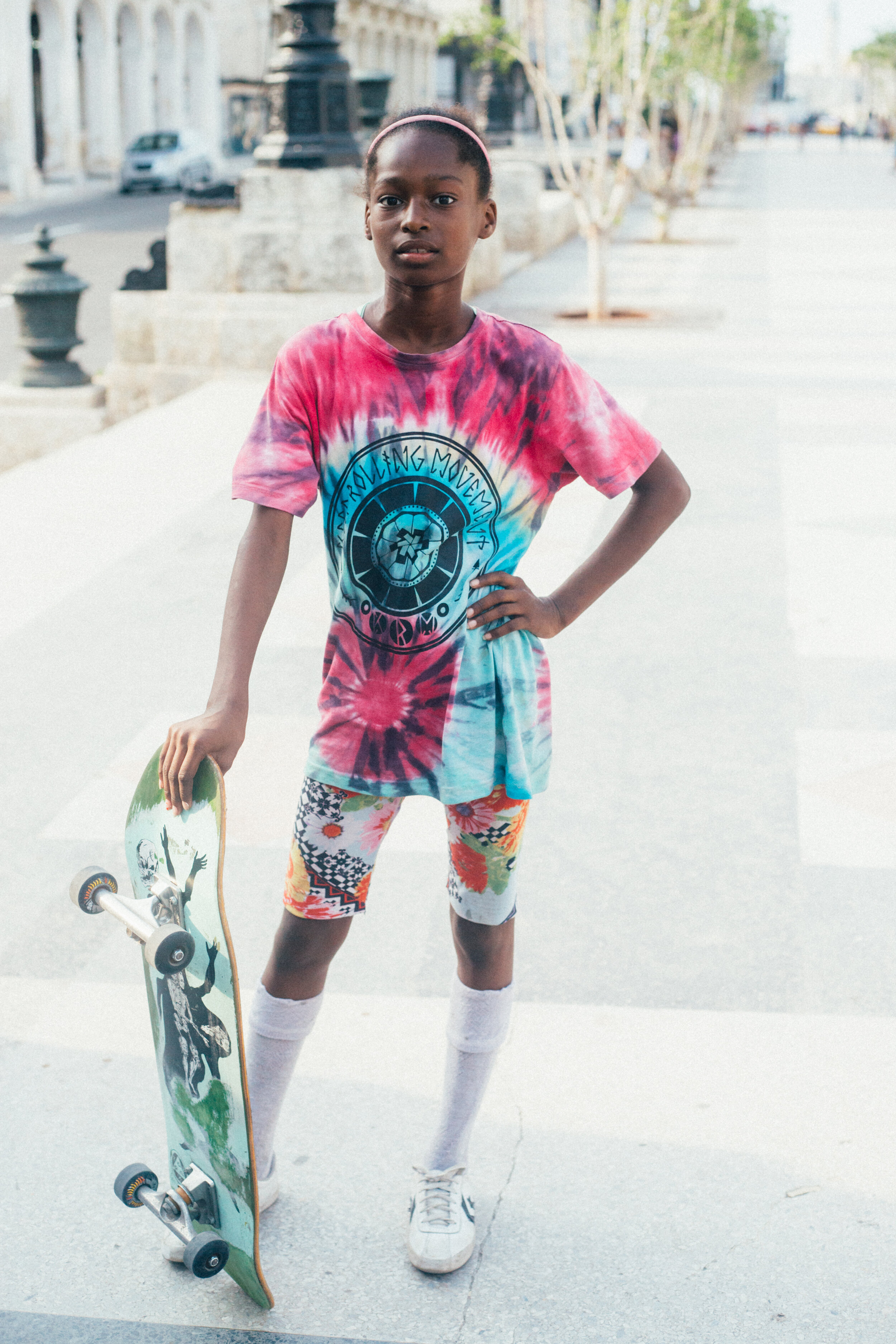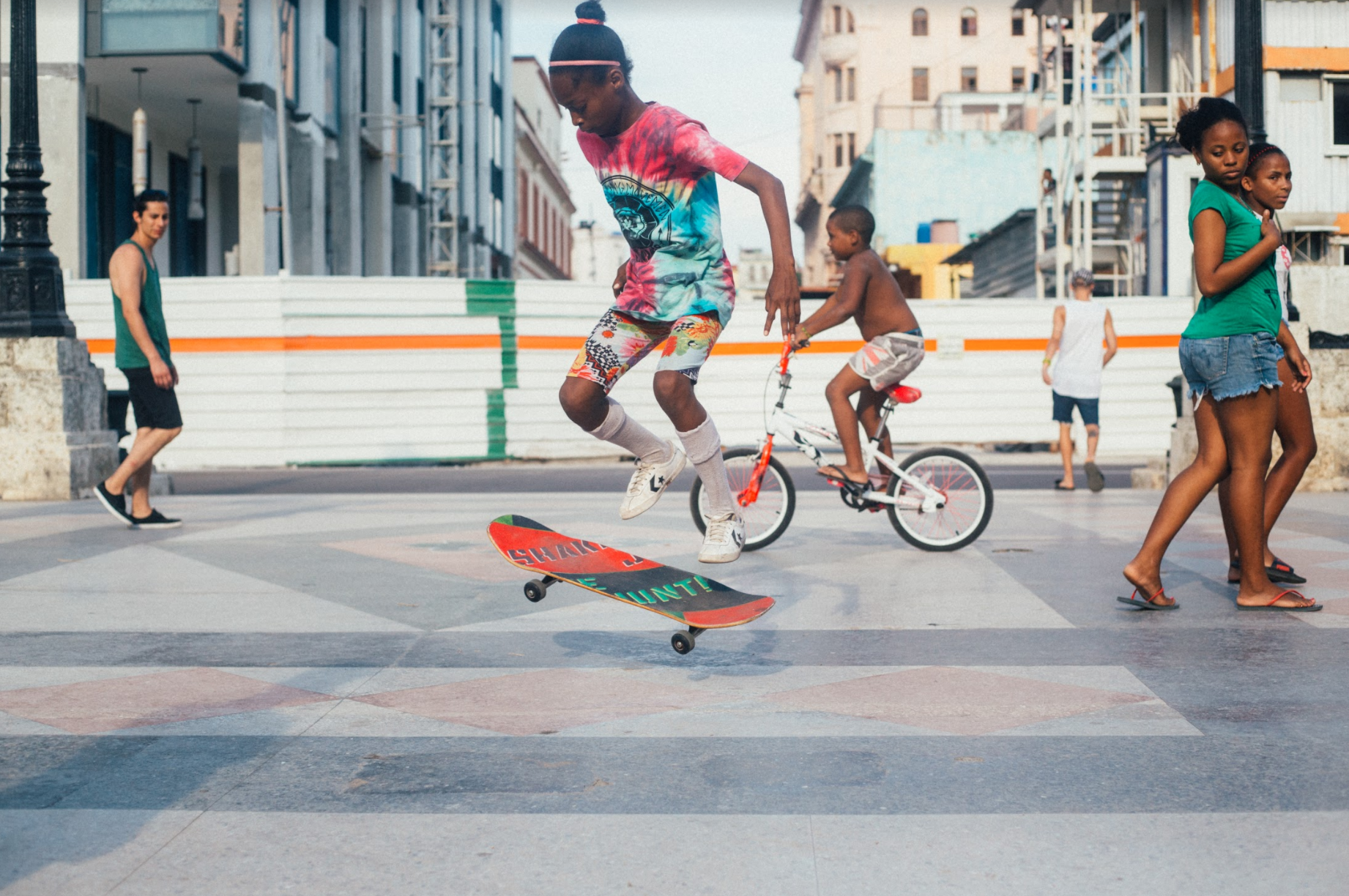Skateboarding is carving new territory in the world in 2020 - beginning with inclusion as an official sport in the Tokyo Olympics. In Cuba, skaters continue to face a number of challenges, although there is reason to be hopeful. We sat down with American and Cuban members of Cuba Skate, an NGO doing important work to empower Cuban skaters and build bridges between the skate community and policymakers on the island.
The Tokyo Olympics (now set for Summer 2021) will include skateboarding for the first time. What does this mean for the sport?
Orlando Rosales: The addition of skateboarding to the Tokyo Olympics will be the key that opens doors on a new level, a level of acceptance and societal respect of the culture of skateboarding. It’s a change on a global scale.
Miles Jackson: It's a huge honor and opportunity. A lot of skaters in the US aren't as excited, just because they're privileged to have skate shops and skateparks everywhere. But for Cuba and other countries with burgeoning skate communities, the Olympics offer an opportunity to represent their countries at the highest level and uplift the sport on a local and international level.
Camilo Fajardo Sanchez: For our sport it’s great. People from all over the world will be able to see the art we make, and from my country they can see that it’s not just dumb games for kids - it’s a way of life, it’s expression, art, adrenaline, and courage which makes skateboarding so unique.
What are some of the challenges that skaters in Cuba face?
Miles: The primary challenges are access to materials and community support for the culture and sport. As any skater pushes him / herself, boards will break and shoes will wear. It's amazing to see how Cubans make the most out of the limited resources. How they extend the lifeline of a worn out skate deck or pair of shoes, passing them down to younger skaters, is a great demonstration of Cuban I think in the future, part of our role as an organization is to increase awareness of the benefits of skateboarding. We're striving to build relationships with the community and society as a whole, so that skaters are treated with more respect and so that there can exists a healthier relationship between skaters and the general public.
Orlando: The list is long. We don’t have support from institutions, there is social prejudice against skateboarding and with nowhere to legally skate, we run the risk of being fined and even having our skateboards confiscated. It’s not easy. We just want to skate, but there’s a misguided vision of skateboarders as delinquents that we fall victim to.
Cuba Skate is celebrating an anniversary, tell us a little bit about the organization, what you do and goals for the future.
Miles: We are, crazy it's how quickly time flies! Lauren and I started Cuba Skate after we studied abroad in 2010, and really can't believe it's been 10 years. I remember we started as a grassroots org and it's amazing to see how much we've progressed since. Our mission is threefold: to Support the evolution of skateboarding in Cuba, to Build local communities and international connections, and to Cultivate youth through sport.Our goals for the future are further sustainability for skaters in Cuba. That means building more skate-able spaces in Havana and across the island, expanding our wood shop so our Cuban staff can manufacture more skate decks, and reaching more youth, females, and persons with physical and mental handicaps.
Cuba Skate is planning a Skate Festival for later this year. Tell us about the festival.
Lauren Bradley: It's going to be a wonderful opportunity for our us to host skaters, musicians and artists from around the world; to welcome them to Cuba and to highlight what tourists and locals alike don't often get to see, a part of their country and people have to offer.There will be contests, workshops, concerts, a fashion show and an educational panel all rooted in the skateboarding culture. We're excited to showcase woodworking demos, our DIY skatepark, and to partner with some really rad venues around Havana. It'll be a super fun weekend for skaters and for anyone interested in experiencing a different side of Cuban culture.
Camilo: The festival will be incredible because for the first time since I started skating, Cuban skateboarding is beginning to be noticed. There’s no better way to celebrate than with a festival and the opportunity to meet other skaters and share inspiring talents, I hope it’s the best festival everyone’s ever seen - for me it will be!
